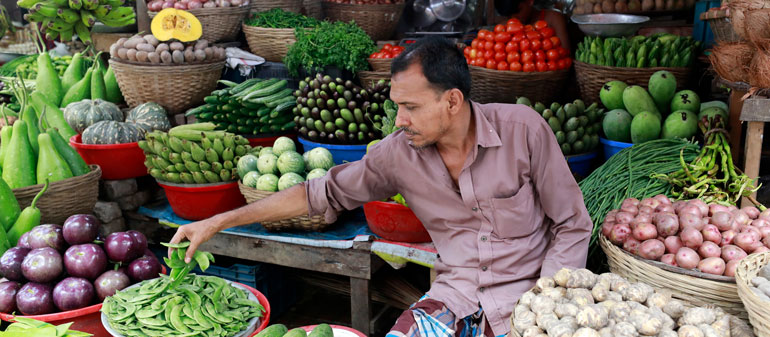In October, over 80 cities came together in Montpellier, France to review implementation of the Milan Urban Food Policy Pact (MUFPP). An increasing number of cities are signing the Pact (it has currently over 200 signatory cities), with 25 signing during the meeting.
This reflects a growing awareness of cities’ potential role in tackling rising levels of malnutrition, a crisis of poor-quality diets that is the number one factor causing ill health in every country, particularly hitting those on low incomes and vulnerable urban populations. Sustainability of these food systems is also fundamental.
The issue could hardly be more critical – today, around 55% of the world's population is thought to be living in an urban area or city, with that figure set to rise to 68% over the coming decades. This makes cities pivotal to global efforts to tackle malnutrition.
A lot is already being done as highlighted by the Menu of actions to shape urban food environments for improved nutrition which was launched at the gathering. This reference document produced jointly by GAIN, the MUFPP and the RUAF Global Partnership, documents the wide variety of ways cities can, and are, improving nutrition e.g. through public procurement, taxation, better functioning value chains or improving transport in the city.
The Milan Pact is still young, having been finalised in October 2015, however there’s clearly a wealth of experience seen in the diversity of local government and other people attending the meeting. The challenge now is to share these experiences (the good and the bad). Then other cities can adapt and build on these ideas without having to make the same mistakes and "reinvent the wheel".
In going forward, we need to address the following issues arising from the meeting.
Need for sharing actions and lessons learned
Documenting actions and lessons learned is essential to efficiently scale up actions to a much larger number of cities. The Menu of actions outlines over 70 case studies of actions undertaken by cities to change food systems in cities. Furthermore 104 applications explaining what city governments are doing to improve food systems, were submitted to the Pact for a Milan Pact Award with the winners announced at the meeting. However, there is still a real need for a dynamic space where further actions and lessons learned can be documented.
Another challenge is to evaluate what worked and what didn’t when governments establish policies and programmes, particularly if we’re to understand if there was a positive impact on the nutrition of people.

Man at the market in Bangladesh. © GAIN
Making urban food and nutrition environmentally sustainable
The vital importance of integrating environmental sustainability into any food policy work was stressed. Healthier diets for an urban population need to be supported by urban food systems that are environmentally sustainable. We need less fragmentation and more coordination to drive the urban food and nutrition agenda forward in tandem with the environmental sustainability agenda. Notably, in the same week that the Montpellier meeting was held, the C40 network in Copenhagen discussed climate efforts that cities are undertaking.
As the Mayor of Quelimane, Mozambique put it, the challenge will be for cities and countries to ensure that city development follows a path of sustainability rather than one of industrialisation leading to overconsumption.
Linking urban food and nutrition policies to the SDGs
One way of ensuring that environmental sustainability and food and nutrition efforts are integrated is by linking them to the SDG framework. Good food and nutrition policies and governance have the potential to contribute to all SDGs.
For example, the city of Mezitli in Turkey (winner of this year’s MUFPP Adversity Award) has set up female-led markets to support women producers in selling their fresh produce and other wares, successfully combining gender and economic empowerment, improving access to fresh food, reducing food loss through the resourcefulness of the women, breaking down social barriers and connecting rural and urban communities.
Multi-level governance of food and nutrition
A city-level focus is important but needs to be embedded in strong multi-level governance. Cities want to learn from each other – both at the national, regional, and global level. Several countries have networks of cities to support urban food and nutrition policies (examples include the UK, Netherlands and Italy), with cities from other countries expressing an interest in this model.
The outcomes of recent regional meetings in Africa, Latin America and Europe were also presented. These regional meetings provide a powerful platform for sharing experience in similar contexts and have the potential to bring cities together for a common voice at regional or global forums, such as the 2020 Global Nutrition Summit.
A unified approach: leaving no-one behind
A final observation is that we need to remember that undernutrition, both hunger and a lack of nutrients, remains a formidable challenge for cities, especially in low- and middle-income countries. While the rapid acceleration of overweight and obesity understandably feature prominently in the discussions on malnutrition, malnutrition needs to be combatted in all its forms.